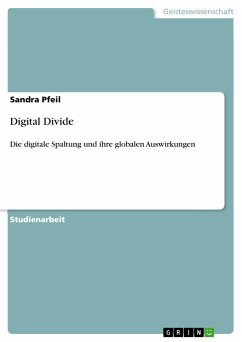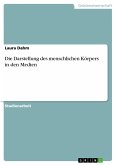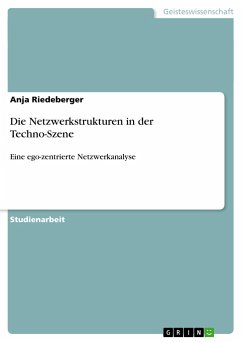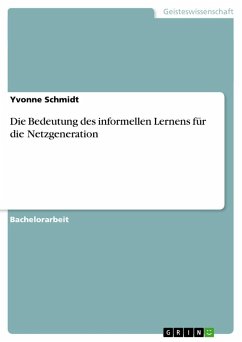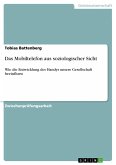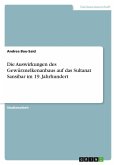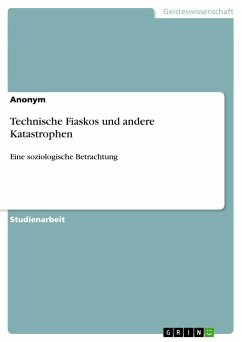Studienarbeit aus dem Jahr 2008 im Fachbereich Soziologie - Medien, Kunst, Musik, Note: 2,0, Europa-Universität Viadrina Frankfurt (Oder) (Kulturwissenschaften), Veranstaltung: Forschungscolloqium "Migration und Minderheiten", Sprache: Deutsch, Abstract: The revolution in Information and Communication Technology (ICT) has contributed to the creation of the concept of the "information - knowledge society".As more and more information and transaction are being carried out online, computer and internet skills play an increasingly important role in our society.Since the mid 1990's the internet changes "our" lives and became an important resource for accessing news and information, communication, distance learning, commerce, entertainment, job searching, civic participation, and government services.Unfortunately not everybody has access to take part in, and the benefit of the endless possibilities offered by the World Wide Web. The term digital divide, also called digital gap, refers to these inequalities. The term subscribes to the growing gap between those who have and those who have not. Where neither general access nor access to content that could benefit them economically and or socially is possible.Firstly, the following paper defines the phrase digital divide and describes the factors which limit and prevent the majority of world's population from taking part in the advantages of the "information society".With reference to Germany - as an example of the digital divide within developed countries -the causes, the population groups who are affected by this problem, and solutions to bridge the gap, will be briefly discussed in the second part of this paper.The main part of the assignment concentrates on an analyses of the different aspects of the global digital divide and focuses on disparities in internet access and use, mainly across developed ("information-rich") and developing ("information-poor") countries and regions in the world.Furthermore the paperdescribes how the lack of technology , the lack of skills, and of how limited access to technology, affects both the individuals and the population as a whole in regions where this digital divide is most evident. It also compares the possible perspectives of the cyber-optimists with cyber pessimists, given the development of the global digital divide and the directions it may take in the future.Finally, a brief overview will be given on the approaches and programs currently being instituted to narrow the global digital gap. With further research into new proposals and possible solutions, this could also contribute to the realisation of a global information society.
Hinweis: Dieser Artikel kann nur an eine deutsche Lieferadresse ausgeliefert werden.
Hinweis: Dieser Artikel kann nur an eine deutsche Lieferadresse ausgeliefert werden.

